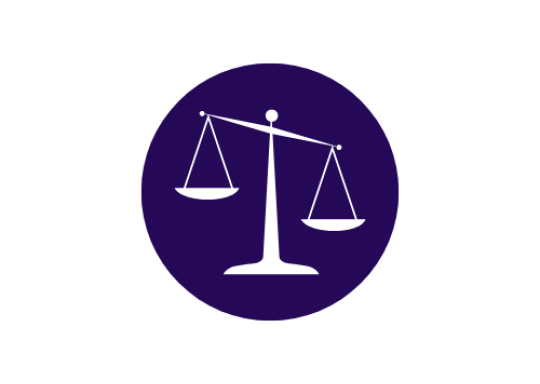Appeals and mandatory reconsiderations
This information is to help you challenge Department for Work and Pensions (DWP) benefit decisions, such as those made on your universal credit or personal independence payment claims.
Contents
How to ask for a mandatory reconsideration
What happens after you make an appeal
Ways your decision can be changed

Want to donate?
These factsheets will always be free, so that everyone who needs them can access them, no matter what!
However, if you found them helpful and are able to, why not consider making a small suggested donation of £1 towards our work?
Introduction
You should be given your decision in writing, together with reasons for the decision and details of who to contact.
If you disagree with your benefit decision, you must normally first ask the DWP to look at the decision again - this is called a mandatory reconsideration. However, if you want to challenge a decision that you do not have a limited capability for work for employment and support allowance, in most cases you do not need to ask for a mandatory reconsideration and can appeal straight away.
If you disagree with the mandatory reconsideration, you can then appeal, where your case will be heard by an independent tribunal - the ‘First-tier Tribunal’.
If you disagree with your decision, you should always consider appealing. You have a very good chance of winning your appeal, particularly if you get help.
For further information on welfare rights, education issues and social care see our other free resources or for more detailed information you can order a copy of the Disability Rights Handbook from our shop.
Mandatory reconsiderations
You normally have one calendar month from the date the decision is sent to you to ask for the decision to be looked at again. If you have missed the one-month deadline, you may be able to ask for a late revision.
A decision maker will look at your reconsideration request and, if they agree with it, they will revise the decision.
Once a decision has been reconsidered, the decision maker will send you two copies of a ‘mandatory reconsideration notice’ to let you know the outcome. You will need the extra copy of the notice if you wish to appeal.
Late revisions
If you have missed the one-month deadline to ask for a mandatory reconsideration, you may be able to ask for a late revision. This may be accepted up to 12 months after the normal deadline if:
- the decision maker thinks it is reasonable; and
- special circumstances made it impracticable for you to ask for a reconsideration in time. The longer the delay, the better the reason must be.
If you make a late request for a mandatory reconsideration (within the extended time limit) and your reasons are not accepted by the decision maker, they should give you a decision refusing to revise. This will then give you the right to appeal against the original decision.
If you have missed this extended deadline, it may still be possible in some cases to get a special kind of revision known as an ‘any time’ revision. For more on this, see our Disability Rights Handbook
How to ask for a mandatory reconsideration
You can ask for a mandatory reconsideration over the phone, but you should confirm your request in writing. Write to the office address on the decision letter and keep a copy of your request. You can also ask for a mandatory reconsideration using form CRMR1. If you are claiming universal credit, you can ask for a mandatory reconsideration by using your online journal; if you do so, take a screenshot or photograph of the reconsideration request and confirm the request in writing or over the phone.
When you ask for a mandatory reconsideration, you should explain why you think the decision is wrong. If you can, get evidence to back up your argument.
In the case of benefits paid because of your disability or health condition, such as personal independence payment (PIP) or employment and support allowance, you will need to see the evidence that was used in making the decision before you can properly argue your case. In this case, write to the address (or ring the number) on the decision letter and do the following:
- request a mandatory reconsideration of the decision. State your grounds simply at this stage, such as (for PIP), ‘I believe that you have underestimated the degree of my disability and consequently underestimated the extent of my mobility problems and/or the difficulties I have in carrying out daily living activities’;
- ask them to send you copies of all the evidence that was used in making the decision; and
- ask them not to take any further action until you have had the chance of responding to that evidence.
When you do receive the evidence, you should have a better idea of why the decision was made. This will help you frame your argument and build up evidence to support your case.
Building a case
Sometimes the only evidence used will be the information you gave on the claim-form for the benefit in question. In most cases, however, there will be a report made by a healthcare professional who was asked to assess you on behalf of the Department for Work and Pensions (DWP).
Once you have a copy of this report, compare it with the account that you gave of your circumstances on the claim-form. Try to find where a difference of opinion arises. For example, in the case of a claim for PIP, you may have written on the claim-form that you could not get on and off the toilet without support, but the healthcare professional noted in their report that they thought you could manage by yourself. Now try to get medical evidence showing that what you said on the form is correct – eg a letter from your doctor or consultant confirming the difficulties and risks you have getting on and off the toilet unassisted.
Once you have evidence to support your case, send a copy of it to the address on the decision letter. If it is likely to take a while to get the evidence, you must let the DWP know how long this is likely to take, so they do not make a decision straight away.
Appeals
Appeals for DWP-administered benefits are independent of the DWP. Appeals are run by HM Courts & Tribunals Service (HMCTS), or the Appeals Service (TAS) in Northern Ireland. Appeals are made direct to HMCTS or TAS.
Time limits to appeal
Your appeal must normally reach HM Courts & Tribunals Service or the Appeals Service within one calendar month of the date that the mandatory reconsideration notice was sent to you.
If you do not need to request a mandatory reconsideration first, your appeal request must be received by HM Courts & Tribunals Service or the Appeals Service within one calendar month of the date that the decision was sent to you; an extension can be given if you have asked for a written statement of reasons for the decision.
If your appeal is late, you must explain why. The appeal tribunal will consider your reasons and can extend the time limit by up to 12 months (13 months in total). Longer delays need better reasons. The tribunal has the discretion to allow appeals made after the 13-month absolute time limit, but only in exceptional circumstances and where you personally have done all you can to bring the appeal in on time.
How to appeal
Appeals for Department for Work and Pensions-administered benefits can be made online or on appeal form SSCS1
In Northern Ireland, use form NOA1(SS)
Your appeal must normally include a copy of the mandatory reconsideration notice. A exception applies for certain employment and support allowance decisions relating to the work capability assessment.
One of the questions on the appeal form asks if you want to take part in your appeal hearing. If you take part, it is an 'oral hearing', and can be by telephone, video or face-to-face. If you do not take part, it is a 'paper hearing'. With a paper hearing, the tribunal will study all the appeal papers and come to a decision based on these alone.
It is normally better to take part in your hearing, particularly if you are appealing against a decision relating to your disability or health condition.
What happens after you make an appeal
HM Courts & Tribunals Service, or the Appeals Service in Northern Ireland, will send a copy of your appeal to the DWP and ask them to provide a ‘response’ to explain how they came to their decision.
The DWP must do this within 28 days – although they can ask for an extension. The DWP will send you a copy of the response.
You will then be sent an appeal date.
The oral hearing
You must be given 14 days’ notice of an oral hearing. The appeal should be informal. The appeal tribunal will be made up of a legally qualified judge and possibly one or two other people, depending on the type of appeal. In the case of disability benefits (such as disability living allowance or personal independence payment), one of these people will be a doctor. Sometimes there is also a representative from the Department for Work and Pensions, to put their case.
The judge will normally introduce the tribunal and explain its role. They usually go on to ask you questions about the issues related to your appeal. For disability-related appeals, they will often ask you to describe what you do on an average day. You should be given the opportunity to explain your case.
Once the tribunal is satisfied that everyone has had the chance to put their case, they will ask you to leave the tribunal room (or video link or phone call) while they make the decision.
The appeal decision
You will get a decision notice on the day of the hearing or soon after. A copy of the decision notice is sent to the Department for Work and Pensions so they can put the tribunal decision into effect and pay you any benefit owed.
If the appeal is unsuccessful, you can ask for a more detailed explanation: the ‘statement of reasons’ for the decision. You have one month from the date of the tribunal decision in which to do this. Once you have read the statement of reasons, it should be clear to you how and why you have been unsuccessful.
If you disagree with the decision, you may be able to appeal further to an ‘Upper Tribunal’. You can only do this if the tribunal has made a legal error. For more on appealing to Upper Tribunals, see our Disability Rights Handbook
Ways your decision can be changed
The main ways in which the DWP changes decisions is by revising them or superseding them.
When they ‘revise’ a decision, they replace it with a new decision that takes effect from the date the original decision was made. It is as if the original decision had never existed.This can happen if the original decision is wrong.
When they ‘supersede’ a decision, they replace it with a new decision that takes effect from that moment onwards – like a substitute coming into a football match part way through the game. This can happen if your circumstances change - for example, your medical condition has got worse and you are entitled to more benefit.
Getting help with your appeal
Advice
Use advicelocal to get advice in your area.
See also our Getting Advice guide
Find out more
If you are an adviser see our Disability Rights Handbook





